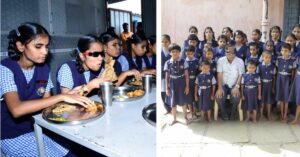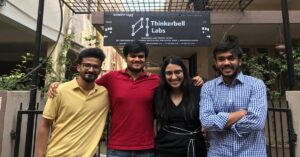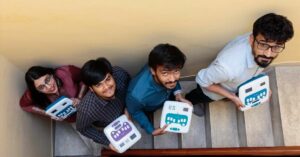How This 63-Year-Old IIT Alumnus Made It Possible for the Deaf-Blind to Read and Send SMS
Meet Professor Arun Mehta, an IIT Delhi alumnus who is making it easier for people with multiple disabilities to communicate.
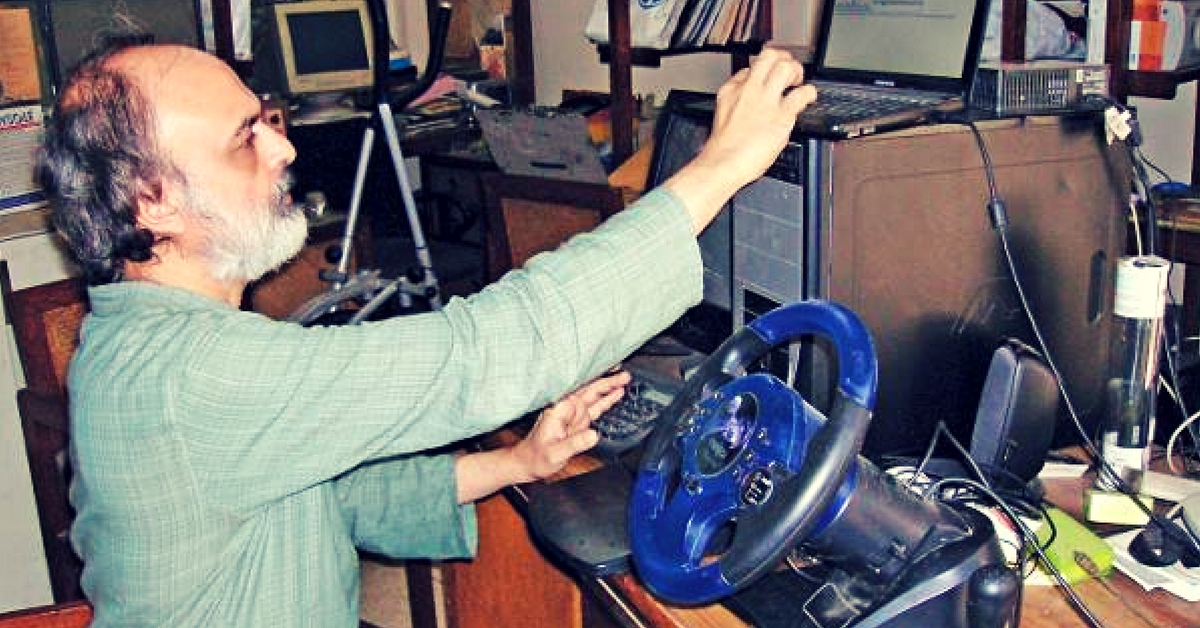
Meet Professor Arun Mehta, an IIT Delhi alumnus who is making it easier for people with multiple disabilities to communicate.
When Professor Stephen Hawking visited India in 2001, his aides reached out to several people and organisations who could help write a software programme to meet the communication needs of people with disabilities. The software had to be designed especially for Professor Hawking who was facing problems with the equipment he was using at the time.
Teacher, software engineer and disability rights activist Professor Arun Mehta decided to take on the challenge. At the time he was running a software consultancy firm. Using his technical training, he created the software called Elocutor to fulfil the writing and speaking needs of people with severe motor and speech disabilities, are literate. Elocutor made it possible for Professor Hawking to type text using a single button. The software works on a prediction model and attempts to anticipate what a user is going to type next, and learns from what he or she had already typed in the past. “Meeting Stephen Hawking was an experience in itself, and a life changing one at that,” Arun recounts.
But this amazing feat was not the end of Arun’s journey of working for people with disabilities.
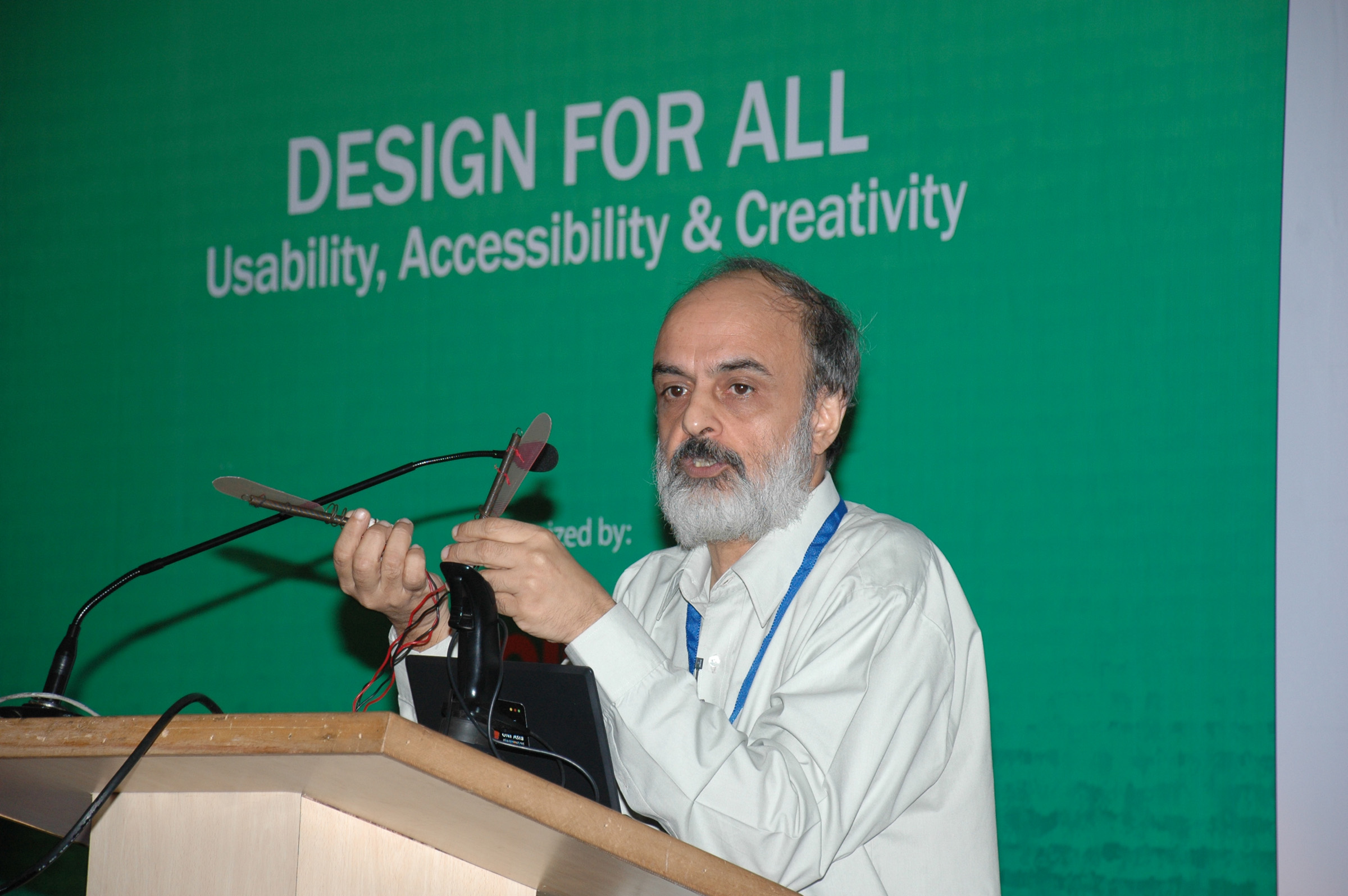
“While developing that software we realised the importance of technology in the lives of people with disabilities,” he says. “So we started doing more work in this area, only to realise that working constantly in this field did not make commercial sense. It is something more suited for an NGO than for a software company.”
You may also like: A Child with Hearing Disability Turned This Fashion Designer into a Certified Therapist
In 2009, Arun and his partner Vickram Crishna founded BAPSI (Bidirectional Access Promotion Society), an NGO that develops free learning solutions and communication software for people with disabilities. “Communication is tough for the disabled. But for those with multiple disabilities, it is virtually impossible. They need outside help. Take the case of the deaf-blind; there are half a million in India alone who can neither see nor hear. We are looking to address the needs of such people,” says Arun. While smartphone devices like Braille display are already available in the market, the hardware is quite expensive. Founded in Delhi, BAPSI aims to improve the access to technology for people with disabilities by making it afforadable.
PocketSMS is one of the apps they have developed. It enables the visually and hearing-impaired to read and send messages on their phones by converting the text into Morse code vibrations.
PocketSMS was written using the Google App Inventor for Android phones. It works on all kinds of smartphones and is based on the principal that vibrations help phones interact with people who cannot see or hear. When a message is received, it is communicated to the user with the help of long and short vibration pulses. The phone vibrates for every message received. The user then has to tap the screen so the message begins to play out in Morse code, with dots and dashes communicated in the form of short and long duration vibrations. (Morse code generally replaces letters with long and short sound or light signals.)
Developed by Anmol Anand, a Masters student in Computer Applications at Lal Bahadur Shastri Institute of Management and an intern at BAPSI at the time, the app comes with a Morse trainer application explaining how to decipher Morse codes.
“I had this idea of using Morse codes in the back of my mind and it took shape when I had a discussion with my friends about how there had to be a way to address the needs of the deaf-blind too. Braille devices and conventional hardware cost about a lakh or more. We came up with a much cheaper option – the good old Morse code,” says Arun, adding that the app was part of a Vibration Series that BAPSI launched in 2012 to develop similar apps.
The other apps in the series include those for completely deaf and blind individuals who are not literate, and for those who are hearing-impaired but can partially see with the help of large fonts. Some of them include the following:
You may also like: Meet the Brilliant Foot Painter Who Was Born without Arms but Still Went on to Set a World Record
Slate:
It is an app in which users just have to move their fingers across a screen to sense the message written on it. The app allows the phone to toggle between a ‘draw mode’ and a ‘sense mode’ with the mere tap of the screen. To allow a user to read, the device vibrates when the user’s finger comes in contact with coloured text and does not vibrate when it brushes against background colours.
SKID:
This is a web-based software programme developed for children with cognitive disabilities such autism, dyslexia, and cerebral palsy. Available on SKID.org.in, the software helps kids who face difficulties with motor movements to read, play games, learn different subjects, and more.
Tell My Phone:
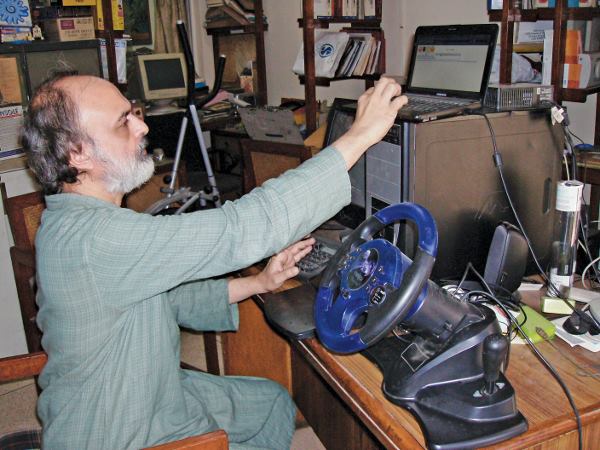
This app was developed to assist people with partial visual impairment to read. It works by allowing people to speak out loud to have their message displayed in large font on the user’s phone so that the he or she can then read.
Over the years, BAPSI has worked with numerous people with disabilities. The organisation won an award under the Inclusion & Empowerment category of the mBillionth Award South Asia 2016, organized by the Digital Empowerment Foundation for the Vibration Series project. The NGO also received financial support from the International Development Research Centre and the Information Society Innovation Fund for different projects.
63-year-old Arun passed from IIT Delhi in 1975, and worked in the field of electrical engineering for some time. He completed his PhD from Germany and then started his own software consultancy.
Once BAPSI began to evolve, Arun decided to quit his software consultancy firm.
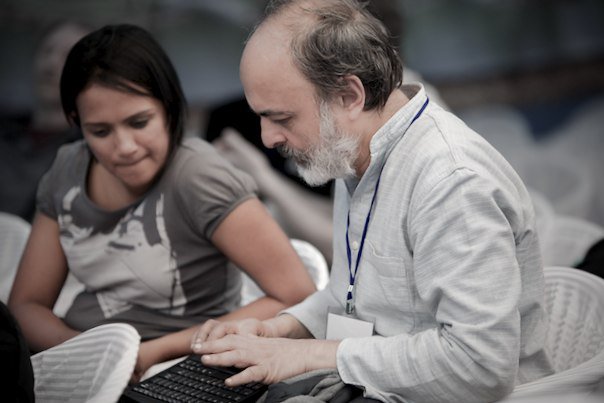
Aside from his work with BAPSI, Arun has also taught computer programming skills to visually-impaired students in New Delhi, providing them with the skills required to generate audio-visual content for the blind in the future. Currently, he is a Professor at Sharda University.
You may also like: One Partially Deaf Man Used Photography to Bring Cheer to 500 Children with Cancer & Disabilities
When asked about his foray into social work, he says, “The talents of so many people with disabilities are lost everyday just because they are unable to receive an education, unable to communicate and get information. We have to help them recognise their potential.”
Know more about BAPSI here. Contact the team by writing at [email protected].
Like this story? Or have something to share? Write to us: [email protected], or connect with us on Facebook and Twitter.
NEW: Click here to get positive news on WhatsApp!
This story made me
-
97
-
121
-
89
-
167
Tell Us More
We bring stories straight from the heart of India, to inspire millions and create a wave of impact. Our positive movement is growing bigger everyday, and we would love for you to join it.
Please contribute whatever you can, every little penny helps our team in bringing you more stories that support dreams and spread hope.






